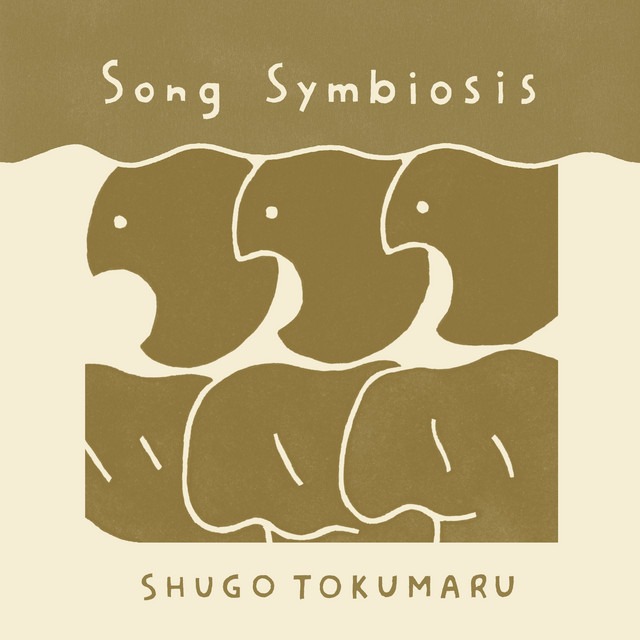Review: Exploring the Concept of “Symbiosis” with Shugo Tokumaru
- by Martín Cacho
- in Reviews

“Symbiosis” is a refreshing and hopeful term, especially considering its origins in biology. While there’s nothing inherently wrong with the science that studies living organisms, some interpretations of key biological theories have given rise to harmful and modernist ideologies. Social Darwinism, perhaps the most destructive, posits that societies evolve in the same manner as living organisms. This notion of "progress" deeply influenced the 20th century, affecting economics, philosophy, and the arts, including music. We also see the misinterpretation of terms like “survival of the fittest,” used to justify individualism and competition, based on the idea that since biology studies the natural state of living organisms, “selfishness” must be the natural state of human beings.
However, among these interpretations, symbiosis stands out, suggesting that in nature, cooperation is key to survival, thus completely transforming the individualism of “survival of the fittest” into a form of collectivism. But what exactly is symbiosis? It describes the tendency of organisms from different species to evolve in mutually beneficial ways, akin to an asymmetrical non-zero-sum game, where the well-being of one individual supports the well-being of another. In nature, we have many intriguing examples of this, such as mushrooms aiding trees, cleaner fish removing parasites from sharks, and pistol shrimp acting as bodyguards for gobies (not joking—check the symbiotic relationship between the pistol shrimp and the goby fish).
So, how do we translate these sociological and biological concepts into music? The musician featured in today’s review has done this for us. Shugo Tokumaru, after an eight-year wait, has released a new album called “Song Symbiosis,” suggesting a “cooperative” behavior of songs coexisting in different habitats that we call “albums.”
However, I must note that symbiosis has been a consistent, albeit unspoken, theme throughout Shugo Tokumaru's career, not just in his latest album. Tokumaru is known for using an extraordinary variety of instruments in a single song or album, often surpassing the 100-instrument mark for just one release. Despite how overwhelming this number might sound, Tokumaru manages to create a sound that feels natural, non-conflictive, and highly imaginative. His vocal delivery also functions as another instrument in the mix, similar to the approach of the electronic folklorist Oorutaichi, who treats the voice as an instrument to produce virtuoso, non-singeable and non-intuitive voice phrases. This maximalism extends beyond instrumentation to include diverse influences, genres, and ever-changing musical material. Here, symbiosis is at play, with each element maintaining its independence while elevating and supporting the surrounding sections.
That's the beauty of art. With Shugo’s music, you can understand everything I mentioned earlier without him needing to explain a single word about it; you can simply feel it through the unique formal characteristics of his music. Gorgeous.
There’s a beautiful balance of folklore, pop, and electronic techniques. On paper, this might seem overwhelming, but I assure you, it’s thoroughly enjoyable. Tokumaru’s work strikes a fine balance: too colorful without feeling gaudy, too complex without being pretentious, and too joyful without screaming “Agh! cheesy!”
Normally, at the end of my reviews, I recommend music to specific niches or audiences, but Tokumaru's music is so unique and eclectic that this task becomes very difficult for me. I believe there’s something here for everyone and that almost anyone will experience some kind of mystical, symbiotic relationship listener/composer.
You can find more information about the artist and his albums on his Official website. Additionally, you can directly support the artist by ordering his new album, "Song Symbiosis" and related merchandise here.
Tracklist:
01 “Toloope”
02 “Counting Dog”
03 “Frogs & Toads”
04 “Hitofuki Sōte”
05 “Abiyoyo”
06 “Kotohanose”
07 “Sakiyo No Furiko”
08 “Resham Firiri”
09 “Bird Symbiosis”
10 “Canaria”
11 “Atte Katte Nuwa”
12 “Bamboo Resonance”
13 “Mazume”
14 “Chanda Mama Door Ke”
15 “Oh Salvage!”
16 “Hora”
17 “Autumn Bells”
18 “Akogare”
or post as a guest
Be the first to comment.



